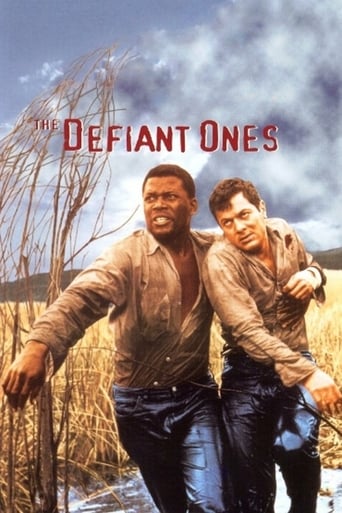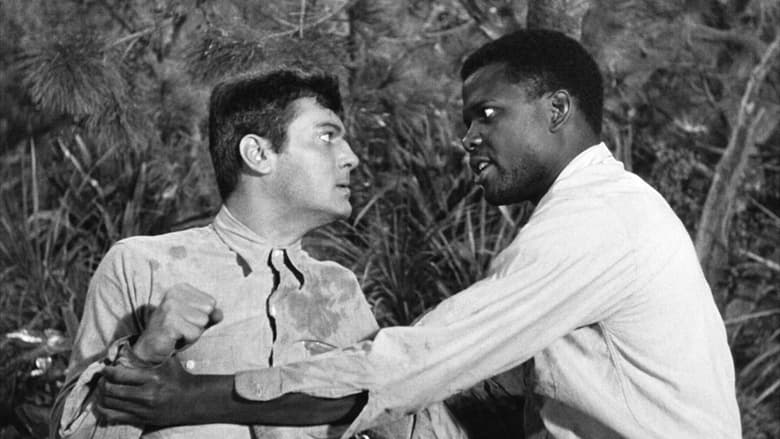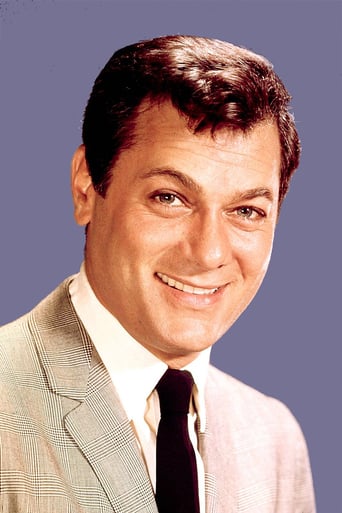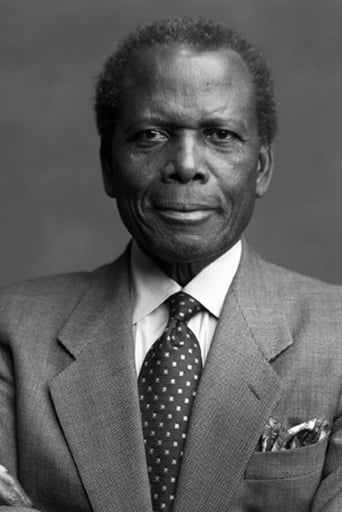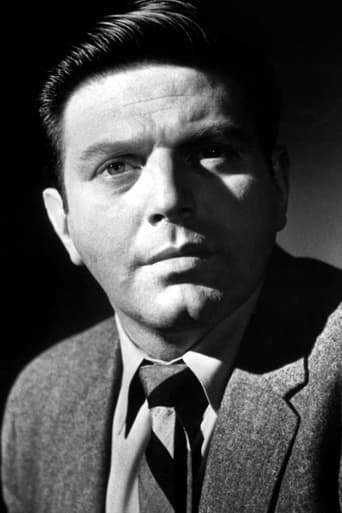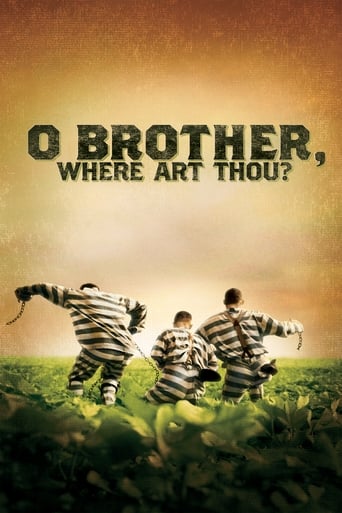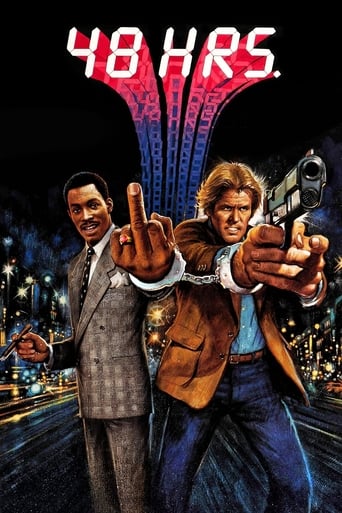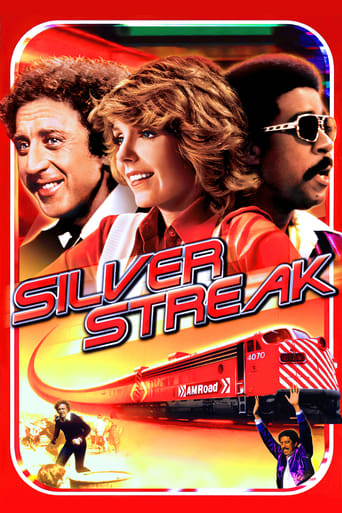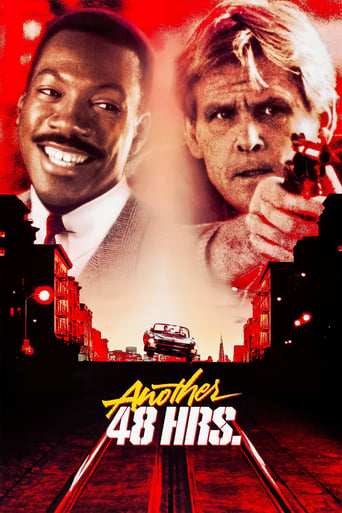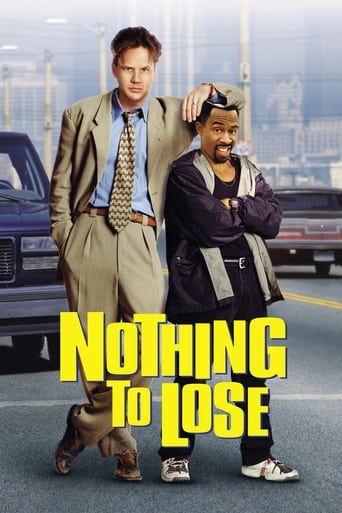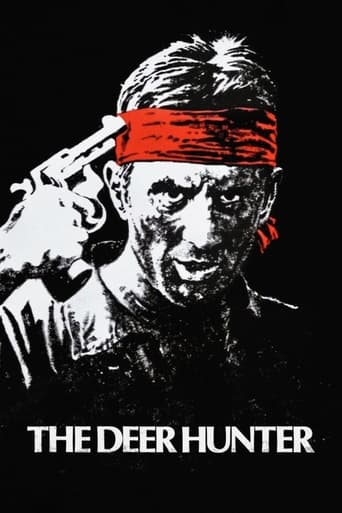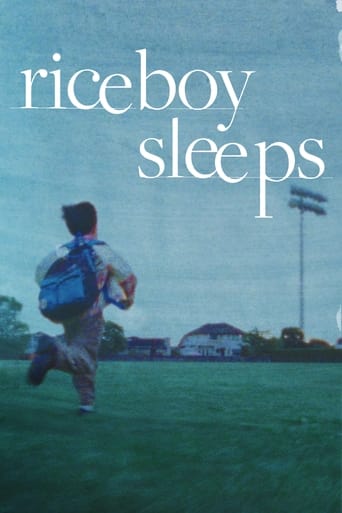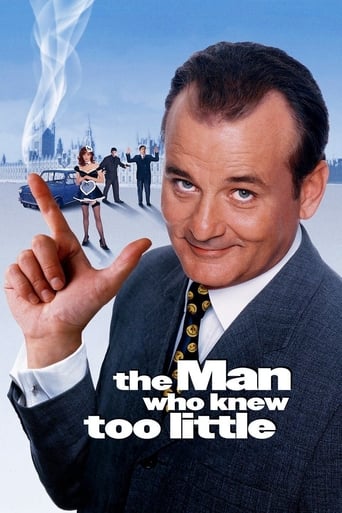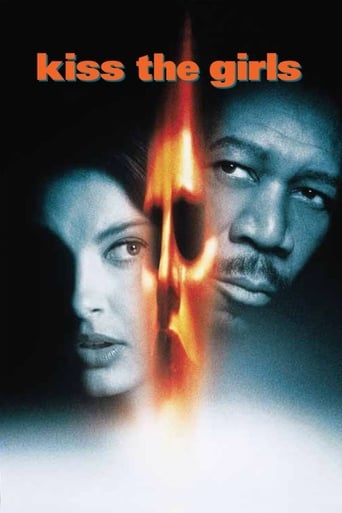The Defiant Ones (1958)
Two convicts—a white racist and an angry black man—escape while chained to each other.
Watch Trailer
Cast


Similar titles
Reviews
When the truck that is transporting convicts has an accident on the road, the inmates John "Joker" Jackson (Tony Curtis) and Noah Cullen (Sidney Poitier) that are chained to each other escape. They hate each other but they need to help each other to succeed in their intent of going north to jump in a train and reach freedom. Meanwhile the humane Sheriff Max Muller (Theodore Bikel) organizes a posse to track them down in a civilized manner and respecting justice. Joker and Cullen reach a small farm where a lonely woman helps them to get rid of their chains. She offers to driver her car with Joker and her son Billy while Cullen would escape through the swamp to the railroad. But when Joker learns that she sent Cullen to a trap, he leaves her and is shot in the shoulder by Billy. Joker seeks out Cullen to save him and when they meet each other, their former hatred has changed to friendship and respect. "The Defiant Ones" is an unforgettable anti-racism classic when the United States were openly racist. Stanley Kramer is responsible for two of the best anti-racism movies, "The Defiant Ones" and "Guess Who's Coming to Dinner", both with Sidney Poitier. Tony Curtis and Sidney Poitier have memorable performances. I would like to know how the reception of this movie from the audiences in 1958 was. My vote is eight.Title (Brazil): "Acorrentados" ("Chained")
I was defiant to watch this movie by Stanley Kramer. The movie is the story of two escaped convicts, African-American Noah Cullen (Sidney Poitier) who hates white people, and bigot white man, John 'Joker' Jackson (Tony Curtis), whom hates blacks. Both men find themselves both shackled to one another after surviving a prisoner transport car wreck. Seeing a way to escape, both men travel the back roads eluding posses, cops, and the law on their quest for freedom. Both actors were able to get down and dirty for the role, but literally as most of the scenes have them lying down in dirt, mud, and rain. They are at first on each other throat, fighting against each other, but for them to survive. They are forced to put their issues away. This is where the characters try to relied on each other. After camping out and hearing out each other stories, the mood between them soften. They are help on the way by supporting characters such as Big Sam (Lon Chaney Jr.). Lou Chaney Jr, the Hungarian actor is wonderful in the role, as he able to sport the Southern accent as well, able to play somebody that isn't trying to be sinister. Too bad, he doesn't have much screen time or much to bring to the story. Another character they met on the way is the lonely, love-hungry widow played by Cara Williams, who offers to turn in Cullen if Joker will stay with her. Cara Williams is so love struck by Tony Curtis's character, that it's seems out of the blue for her to help one stranger after one day spent with each other, but Cara Williams does a great act as a desperate woman looking for escape by any means even trying to hook up with a inmate. She can be pity and hatred when view. By the time the two men are within hailing distance of a train that might take them to freedom, they have become friends somehow. Despite its pedigree — the film lacks screen time to explain more how the two main characters' antagonism will boil over and then cool into a forged friendship based on altruism and shared sacrifice. It's running time is only 97 minutes. Way too little for this character is suddenly become cool with each other. The whole film is way too short and focus on too long on cut aways with Sheriff Max Muller. (Theodore Meir Bikel) who was also nominated for the role, just doesn't give anything new to it. I also would love to hear some music score. The film lacks any music to give the movie any suspense, feeling or drama. It felt too good of a movie, not to have a film score. The ending will a downer, but it's works for the story. One of the biggest complains in the film is that some critics stated out that Sidney's character is a 'Magical Negro'. I don't see that at all, as Joker first come in the aid to Cullen when Cullen is stuck in the swamp, as well as having back story. Nor does Sidney character gives anything special insight to change Joker. It was the outside world and the supporting characters that change Joker. The scene where Sidney Poitier comforts Tony Curtis by holding his head in his arms is not made to look like Poitier's character was a servant to the the white man, at all. He did that to comfort his friend. The movie shows that Black or white we are all equal before the harshness of life. The movie is a good movie for teaching civil rights and racial tolerance. I think the theme of racism better and even more obvious in the foreground to make time this was filmed deliberately black-and-white. The movie is pretty gutsy for its era. It's a good watch, so check it out.
"The Defiant Ones" was retitled in French, "The Chain", as if the real issue was the relationship between John "Joker" Jackson and Noah Cullen, Tony Curtis and Sidney Poitier as two fugitives from a chain gang, a white and a black man shackled together and forced to cooperate and trust each other in order to survive. The chain would become such a symbol that during Sidney Poitier's AFI Lifetime Achievement Award, Curtis asked him to lift his left hand, he did the same, and suddenly, we could almost see the chain magically reappears as the symbol of this brotherly bond that transcends the color of the skin. But I guess "The Defiant Ones" resonates as a more complex and thought-provoking title, because it doesn't rely on the obvious, but rather on the two character's resentful attitudes, that visually fits the beautiful black and white cinematography. Both have accumulated anger and frustration all their lives, Jackson is tired of being an average nobody saying "thanks" to the big shots to get more money, while Cullen as a black man from the South, is tired of "being nice" and being called "boy" and swallowing his pride in moments where a nice punch on the face is tickling his hand. As prisoners, both incarnate the same consequence to two different kinds of exclusions: by class and by races Yet their escape is not meant to inspire our sympathy or to portray them as two unfortunate individuals victims of circumstances. "The Defiant Ones" is a powerful social commentary about the way America is viewed from the very bottom and how the vision encourages criminal vocations by perverting what could be a stimulating legitimate desire for revenge. But the movie avoids the kind of patronizing preaches à la 'Atticus Finch', the script is surprisingly modern in its tone, reminding of the New Hollywood independent wave of the 70's. Take the sheriff, played by Theodore Bikel, he's not your typical racist bigot, but a professional man assigned to get the prisoners, and no one in his team is portrayed as a cold-blooded killer either.The only bit of fantasy is the idea of a chain between a black and white man: "the warden had a sense of humor", they say, maybe he thought that in a case of an escape, the toughest prisoners would end up killing each other anyway. Even if the explanation doesn't convince some purists, seriously, I'm glad the writers didn't abandon such a great premise for the sake of realism; the film is still a drama but not a documentary. Yet, there is something sincere and truthful in Tony Curtis and Sidney Poitier's performances. Curtis makes it hard to believe that he'd be Daphne in "Some Like it Hot", and Poitier exudes a tough coolness that contrasts with the elegant and soft-spoken roles of the 60's, and I could never resist to his "bowling green, sewing machine", the blues song that helps him to keep a good spirit in hopeless situations.Whether by singing, grunting, or fighting, the defiant attitude has its limits, because the success of the escape only depend on cooperation. Yet the film trusts its material enough not to jump into inspirational conclusions quickly. When they cross the river, Cullen thanks Jackson for having pulled him out of the water, Jackson rectifies: he prevented himself to drown. Their solidarity is only built on survival instinct, like when they successfully get out of a pool of mud. They're confronted to a new situation when they break into a small town's grocery store, to get food and tools and risk a lynching. Curtis tries to reason the men, but when it gets desperate, he invokes his whiteness (the look Poitier gives him at that moment is a killer). Cullen knows it's over and doesn't hesitate to spit on the guy who teases him, even if it got him a slap in the face.The mob's depiction is compensated by the intervention of 'Big' Sam, Lon Chaney Jr. as a former chain prisoner who frees them in the morning. The journey goes on, when after an ultimate fight, they end up in the house of a single mother living with her son. The two prisoners finally get rid of the chain and the morning after, they finally take different directions. Before taking the car with his new woman, Jackson learns that she gave Cullen wrong indications using him as a bait. Jackson leaves her in a state of rage that earns him a bullet in the process. Only Jackson and Cullen could see how similar they were, how brothers they became in the same fight. And it's out of respect, earned the hard way, that Jackson goes to Cullen.The two men reunite in the swamp, and hearing the train whistles and the dog coming after them, they run for the most emblematic moment of the film. Cullen hops in the freight train but is incapable to drag Jackson aboard. In recognition of Jackson's previous gesture, Cullen sacrifices his only chance of freedom by jumping and both tumble to the ground as if they still had a chain. They're exhausted physically, but their spirit is as high as it never was, they can only wait for the police to come after them. When the sheriff finds them, Cullen sings his song, while Jackson in his arms, about to pass out, smiles at him. The chase is over, but it's not an unhappy ending, the three men are smiling, and Poitier concludes: "bowling green, sewing machine"It's only by defying their own selfishness and racial boundaries, that the defiant ones gained in humanity at the price of freedom. And when Poitier raises his hand, asking Curtis to join him as if they were still shackled, they've never been as shackled as when they didn't have the chain, and maybe that's the key of tolerance, to act as if we were all chained to each other.
The time of extreme racism has long gone, but this chained-together white and black convicts' escaping adventure simply hasn't waned much for its in-your-face impact of genuine thrill and sympathy, director Stanley Kramer's (from SHIP OF FOOLS 1965, 6/10) third feature, gathering Curtis and Poitier as the "impossible pair", the film would successfully pave the way for Poitier and Kramer's prospective Oscar-winner echelon and afford Curtis a splendid career-turn with his only Oscar nomination. One could easily be aware of the shooting condition since clearly Curtis and Poitier have taken their toll in their harsh fugitive surroundings, wrestling with the precipitate torrent, the mud pit under the pouring rain, a perilous marsh and finally a running train. But those are only default set pieces to sustain the film in its narrating procedures, a sharp and sound script does remind me how slowly the civilisation progress we have achieved since only 50 years ago, the world could be utterly colour-sensitive. Curtis and Poitier's two handers are meticulously orchestrated, but among the supporting group, Cara Williams and Theodore Bikel also obtained two Oscar nominations. The former partook in the latter half and induced the most poignant confrontation for Curtis' character, choosing between freedom (even love) and the brotherhood with a black prisoner (mercifully, the finale reciprocates with the same dilemma for Poitier). Meanwhile, Williams exhibits a dooming desperation out of the unsatisfied woman without being sidelined as a cipher in the plot. Bikel, is the Sheriff with a kind heart, whose gritty and congenial persona has re- established the integrity of the police force. Last but not the least, Poitier's a cappella rendition of W.C. Handy's "Long Gone (From Bowlin' Green)" has been repeated three times in the film, the beginning, the middle section (where they are caught by the village people) and the ending, precisely elevating the film's brio and set a great example of how a theme song could generate such an ineffable passion and evocation into a film's texture. ps: the film got two Oscars among its 9 nominations, BEST CINEMATOGRAPHY BLACK & WHITE and BEST ORIGINAL SCREENPLAY.

